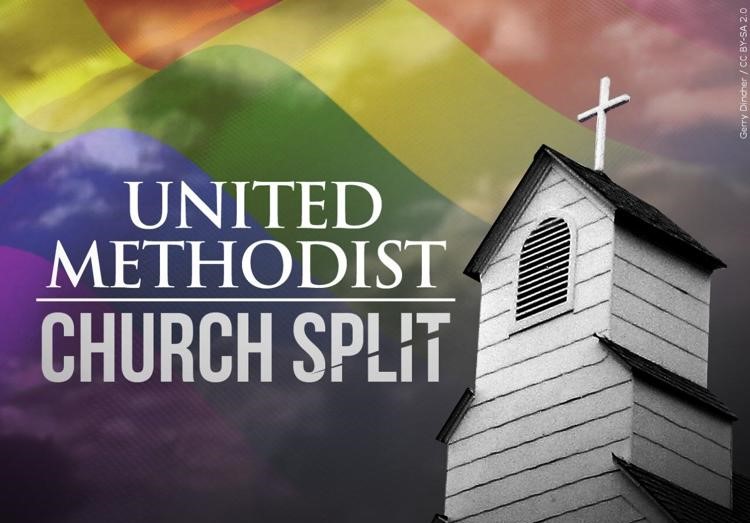“I want God’s will – as long as it doesn’t include suffering.”
I began to repeat those words when, as a teenager, I first felt the tug of same-sex attraction.
Years later, having found freedom from those unwanted attractions and speaking publicly about it, Mark wrote me, “I am 16 years old. For the last four years, I’ve struggled with a torturous problem. I am a homosexual. Believe me, I did not choose to be. I am tormented constantly by this.” Mark’s sentiments are repeated hundreds of thousands of times each year – millions when you include the wider LGBTQ community, their families, and friends.
Try as we might, we cannot escape suffering – whether or not we are in God’s will. However, the suffering associated with God’s will is far superior to “other suffering.”
How so?
One of the most consequential verses in Scripture is Philippians 3:10 where the Apostle Paul lists three things he wants to know.
“… that I may know Him [Christ] and the power of His resurrection and the fellowship of His sufferings …” (NASB)
If Paul was speaking these words to us in a giant arena, most Believers would cheer as he spoke the first two things, “to know Christ and the power of his resurrection.” What Christian wouldn’t leap to their feet when those two declarations are made?
“I WANT TO KNOW CHRIST” shouts the apostle.
“YES”, we cheer.
“I WANT TO KNOW THE POWER OF HIS RESURRECTION” Paul continues with fervor.
We roar ever louder, “YES, WE WANT RESURRECTION POWER!”
But then comes that uncomfortable announcement which we would consider a colossal gaffe – “I want to know, ‘the fellowship of His sufferings.’”
That third declaration falls flat. As Paul utters those words, the massive crowd gasps in unison – followed by deathly silence.
And then, “Did we hear him correctly? Maybe he misspoke.” Someone in the crowd muddles under his breath, “Is Paul experiencing heatstroke?”
Paul’s third point contains two words we would never join together – “fellowship” and “suffering”. The two words appear incompatible – “incapable of association or harmonious coexistence.”
Was Paul stating back then what today has become known as “misery loves company?”
No.
Suffering is a component of the Christian life we most often wish to avoid. And yet, a mystery surrounds this verse. The three parts fit perfectly. The suffering of which Paul writes is different from “typical sufferings” in that it is wedded to Christ’s sufferings. It’s impossible to know Christ and His resurrection until we know “the fellowship of His sufferings.” Simply put, resurrection power requires a death.
It’s a suffering that finds comfort in what I call “Christ’s outstretched arms”, a suffering that communicates, “I’ve trudged that path of pain; let me show you the way.” It’s a suffering that centers on the cross of Christ.
Hebrews 2:18 reads, “Because he (Christ) himself suffered when he was tempted, he is able to help those who are being tempted.” (NIV)
Several decades after my last gay relationship, I still suffer from same-sex attractions but to a lesser degree and in a paradoxical way.
How so?
While serving as a pastor some years ago, I held a Maundy Thursday service that centered on Christ’s last supper, his agonizing prayers in the garden of Gethsemane, his two faux trials, and his flogging. The cross was yet to come.
It was a somber service where I spoke in a hush. When the meeting ended, a longtime Believer in her 80s approached me and in a similar hush said, “That was the sweetest service I’ve ever experienced.”
Interesting, is it not, that a Christ follower would describe those last few hours before Christ’s death as “sweet.” But so it was. To my LGBTQ friends, I dare not tell you I no longer suffer from same-sex attractions, but the suffering is oh so “sweet.”
This article is adapted from Tim Wilkins’ book – MORE THAN WORDS: Walking with Talking at your LGBTQ friends.
Inside MORE THAN WORDS
For years starting as a young teen, I’d fall asleep praying, “God, take these feelings away”, but I’d wake the next morning with the feelings still there. Didn’t God know I was suffering – that I was in a mental hell? Life, if you can call it that, was terrifying, a nightmare, a profane horror, an endless dark night of the soul, suffocating, maddening. Did God not care?





Leave a Reply